The Shimmering Illusion
Based on presentation to the Thomas More Institute in Montreal, Canada in November 2015.
Wouldn’t it be nice if political leaders actually served their citizens? However, despite noble words of taking office to serve people, over time consensus, negotiation and agreement tend to give way to such sentiments as ‘You scratch my back and I’ll scratch yours.’ One compromise leads to another and democracy slowly shifts from serving the people to serving those in power. In extreme cases, violence replaces dialogue. The Fragile States Index for 2015 assigns countries a score based on such social, economic and political criteria as mounting demographic pressures, massive displacement of refugees, uneven economic development, severe economic decline, and wide spread human rights abuses. Countries such as the United States have a score of 35.3, Canada 25.7, Germany 28.1, the United Kingdom 33.5 and France 33.7. The lower the score, the better political leaders serve their citizens. However, if we choose four countries in Africa in various states of development, we see a marked difference in the score. Mali, for example, comes in at 93.1, Malawi 86.9, Togo 86.8 and Côte d’Ivoire 100.
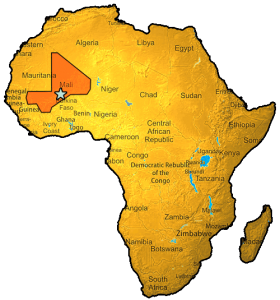 Mali has a population of 14.5-million people made up of several ethnic groups such as the Bambara, the Malinke, the Fula and the Tuareg who share similar historic, cultural and religious traditions. The population is overwhelmingly young, poor, and mainly Muslim. From about 1990 Malians lived in relative peace under a multi-party democracy.
Mali has a population of 14.5-million people made up of several ethnic groups such as the Bambara, the Malinke, the Fula and the Tuareg who share similar historic, cultural and religious traditions. The population is overwhelmingly young, poor, and mainly Muslim. From about 1990 Malians lived in relative peace under a multi-party democracy.
Islamist invasion
That changed in January 2012 when Islamist rebels invaded and took over the desert portion of Mali. When the army couldn’t stop the advance, a coup d’état broke out as rebel troops felt they could do better. By January 2013, Mali’s army under new leadership, and still unable to counter the Islamists, asks for help from France. French troops drive back the Islamists to Mali’s far northern territory. In April 2013, the United Nations approves the use of Peacekeepers, who were deployed the following July. They are currently authorised until the end of June 2016.
Despite the restauration of democracy with the July 2013 election, the conditions that led to the conflict have not been alleviated. The invasion and coup d’état dramatically increased negative thinking and uncertainty about the future creating a growing sense of resignation. Mali is marked by poverty, a low level of education, and limited access to food, water, and health services, all of which are precursors of conflict. One of the most outstanding indicators of conflict is Malians’ disdain of the Tuareg. 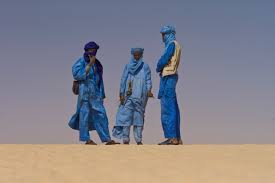 The Tuareg claimed a homeland, Azawad, inside Mali where they could run their own lives without feeling like second-class citizens. Muslim extremists from Libya and Algeria persuaded the Tuareg that an alliance would help them achieve this homeland, basically tricking them by taking advantage of the underlying distrust between Malians and the Tuareg to invade Mali. After the French intervention, an agreement was reached between Mali’s then interim government and the Tuareg. Malians saw this as giving in to the Tuareg. Even though it was the Islamist invaders who forced local women to wear veils in public, and the men to wear beards, who forbid music and enforced strict Sharia law, the people continued to see the Islamists and the Tuareg as one.
The Tuareg claimed a homeland, Azawad, inside Mali where they could run their own lives without feeling like second-class citizens. Muslim extremists from Libya and Algeria persuaded the Tuareg that an alliance would help them achieve this homeland, basically tricking them by taking advantage of the underlying distrust between Malians and the Tuareg to invade Mali. After the French intervention, an agreement was reached between Mali’s then interim government and the Tuareg. Malians saw this as giving in to the Tuareg. Even though it was the Islamist invaders who forced local women to wear veils in public, and the men to wear beards, who forbid music and enforced strict Sharia law, the people continued to see the Islamists and the Tuareg as one.
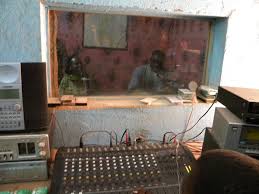 Many in my conflict-resolution workshop in Mali were still traumatised. One journalist was at a radio station when an Islamist rebel walked in, held a gun to his head and forced him to read a manifesto on air. Another journalist played a 10-second jingle before the declaration. Afterwards, the Islamist hauled them both into the town square, announced that more than four seconds of music for a jingle was against Islamic law and cut off the hand of one of the journalists. The other journalist fainted. He was tied up and beat severely for refusing to watch the administration of justice, which was apparently also a violation of Sharia law. The invasion not only terrified the people, it reinforced their disdain toward the Tuareg. Malians do not believe that their accumulated acts of neglect and disdain are an underlying factor in the country’s problems. This disdain stems back to the 1990’s when opposition to the one-party government of Moussa Traoré gave way to multiple parties, and eventually an elected government. In those years, the Tuareg began to return to Mali from Algeria and Libya where they had migrated during a prolonged drought. Their return led to ethnic tensions with other more sedentary ethnic groups. Fearing the Tuareg would form a secessionist movement in the north, the Traoré regime imposed a state of emergency, repressing them. The irony is that this led the Tuareg to do exactly what the government tried to prevent. In June 2015, Mali’s current government signed a new accord with the Tuareg. However, given the isolated killings that continue to this day, and despite an elected government, democracy in Mali remains a shimmering illusion.
Many in my conflict-resolution workshop in Mali were still traumatised. One journalist was at a radio station when an Islamist rebel walked in, held a gun to his head and forced him to read a manifesto on air. Another journalist played a 10-second jingle before the declaration. Afterwards, the Islamist hauled them both into the town square, announced that more than four seconds of music for a jingle was against Islamic law and cut off the hand of one of the journalists. The other journalist fainted. He was tied up and beat severely for refusing to watch the administration of justice, which was apparently also a violation of Sharia law. The invasion not only terrified the people, it reinforced their disdain toward the Tuareg. Malians do not believe that their accumulated acts of neglect and disdain are an underlying factor in the country’s problems. This disdain stems back to the 1990’s when opposition to the one-party government of Moussa Traoré gave way to multiple parties, and eventually an elected government. In those years, the Tuareg began to return to Mali from Algeria and Libya where they had migrated during a prolonged drought. Their return led to ethnic tensions with other more sedentary ethnic groups. Fearing the Tuareg would form a secessionist movement in the north, the Traoré regime imposed a state of emergency, repressing them. The irony is that this led the Tuareg to do exactly what the government tried to prevent. In June 2015, Mali’s current government signed a new accord with the Tuareg. However, given the isolated killings that continue to this day, and despite an elected government, democracy in Mali remains a shimmering illusion.
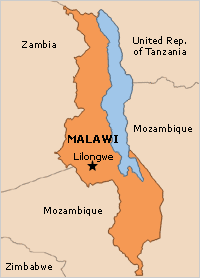 Malawi has a score of 86.9 on the failed states index. That places it in a slightly better position democratically than Mali. Malawi, in southern Africa, is trying to overcome decades of underdevelopment. Malawi had its first democratic election in 1994. However, corruption, poverty and a severe AIDS epidemic make it difficult to govern. Rapid population growth is also encroaching on the country’s greatest resource, its agricultural land. When the people of Malawi asked their government why prices were rising in a poor economy, why students were barred from attending university on the basis of where they came from, and why foreign relations had deteriorated, they were asking only that their democratically-elected government be accountable. However, on the 20th of July 2011, police opened fire on peaceful marchers killing 19 and injuring several others. Police also beat up six journalists. An increasingly corrupt government tried to muzzle the press, as well as control who could receive an education. By restricting education President Bingo wa Mutharika wanted to ensure that his tribe would remain in power over the long term.
Malawi has a score of 86.9 on the failed states index. That places it in a slightly better position democratically than Mali. Malawi, in southern Africa, is trying to overcome decades of underdevelopment. Malawi had its first democratic election in 1994. However, corruption, poverty and a severe AIDS epidemic make it difficult to govern. Rapid population growth is also encroaching on the country’s greatest resource, its agricultural land. When the people of Malawi asked their government why prices were rising in a poor economy, why students were barred from attending university on the basis of where they came from, and why foreign relations had deteriorated, they were asking only that their democratically-elected government be accountable. However, on the 20th of July 2011, police opened fire on peaceful marchers killing 19 and injuring several others. Police also beat up six journalists. An increasingly corrupt government tried to muzzle the press, as well as control who could receive an education. By restricting education President Bingo wa Mutharika wanted to ensure that his tribe would remain in power over the long term.
Access to Education
Under Malawi’s Constitution every citizen has the right to an education. Malawi became independent from Britain in 1964. However, in the first 30 years of independence, there were few opportunities to obtain an education. The government ran an average of one secondary school for each of 24 districts with a few schools run by religious groups. Then in 1994, Bakili Muluzi took over from the country’s founding president, Hastings Banda, and introduced primary schools. As school enrolment doubled to three million, the government built more schools. It was an expensive under-taking, which also included training teachers. This prompted the business community to make more than 1500 private schools available. This often meant converting former bars into secondary schools without minimum facilities for washrooms, libraries or laboratories. Not only were facilities sub-standard, teaching standards dropped.
In 2010, the government closed as many as 800 primary and secondary schools in a bid to restore standards, and save money. However, President Mutharika also brought back an academic quota system. The so-called “equal access of education law” set a quota of ten fully-paid university places for each of 28 districts. Under this quota students with poor marks were chosen while many of the best were dismissed. The quota system was announced even though Malawi’s High Court had already outlawed it in 1993, and 2003. To put this into perspective, the government funds two universities in Malawi, while the Catholic Church, Seventh Day Adventists, and Livingstonia Mission (Presbyterian) each have their own. These five universities combined can accommodate fewer that five thousand students out of the 70-thousand who sit the school-leaving exam. This restriction had the potential to incite violence between basically peaceful tribes by favouring potential university students from the south at the expense of those from the north and central regions.
Malawi’s Human Rights Commission called it discriminatory. Several religious groups spoke out against it. The 30 journalists in my workshop on conflict resolution were strongly against quotas and said so in their articles. Even though they were from different ethnic groups, including several from the south, they wanted all Malawians to be treated the same, refusing to be drawn into regional or ethnic conflict despite the president’s actions. On the 23rd of August 2011, the on-line Nyasa Times revealed that President Mutharika had been using a quota system to name people to positions of power in government. The Lhomwe, a tribal grouping founded by the president, held nearly all top influential government positions. This included the Revenue Authority, the Anti-Corruption Bureau, Immigration, the Reserve Bank of Malawi, Agricultural Development, the Blantyre and Lilongwe City Councils, the Police and the Military.
Government attacks against the media are another important factor that works against democracy in Malawi. In 2010 Mutharika threatened to shut down any newspaper that tarnished his government’s image. He then banned the Weekend Times for publishing a report by the Southern African Development Community that said “more than a million Malawians face starvation because of poor rains in several districts.” When Mutharika returned from a trip abroad, gangs of party zealots showed up at his press conference and jeered at journalists every time they asked questions. In November 2011, he passed an amendment to the penal code allowing the government to arbitrarily shut down local publications without judicial oversight. Although Mutharika is no longer in power, the amendment is still in effect.
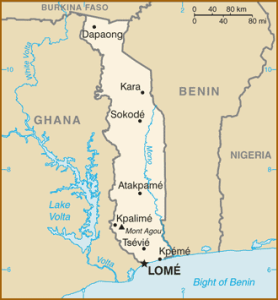 Togo has a score of 86.8 on the failed-states index, one-tenth of a point behind Malawi. Togo is one of Africa’s smallest countries with an area of 57-thousand square kilometres. It was a slave-trading nation from the 16th to the 18th century. Germany took over in 1884 and France took over after the First World War. Togo gained independence in 1960. In 1967 General Éyadéma Gnassingbé launched a coup d’état and declared himself president. He ruled with an iron hand for 38 years.
Togo has a score of 86.8 on the failed-states index, one-tenth of a point behind Malawi. Togo is one of Africa’s smallest countries with an area of 57-thousand square kilometres. It was a slave-trading nation from the 16th to the 18th century. Germany took over in 1884 and France took over after the First World War. Togo gained independence in 1960. In 1967 General Éyadéma Gnassingbé launched a coup d’état and declared himself president. He ruled with an iron hand for 38 years.
Things changed only slightly with the legalisation of political parties in 1991 and a democratic constitution a year later. In 1993 the European Union imposed an embargo on Togo for what it called a “democratic deficit” until Éyadéma agreed to hold elections. A second multi-party vote was held in 1998. International observers and opposition parties noted irregularities in both. Human Rights Organisations came to know Togo for rigged elections and systematic torture. Security forces and the police acted with impunity. Dissidents simply vanished. Prisons were filled with those who dared speak ill of the president.
In 2002, Genera Éyadéma changed the constitution so he could be president for another five-year term. He banned a popular opposition leader. A million extra names suddenly appeared on the voter’s lists. Thugs disrupted all political rallies except those for the ruling party. It was effective censorship. Then on Saturday morning the 5th of February 2005 General Éyadéma died of a heart attack. By Saturday night State media announced that his son, Faure, had been appointed president, and on the pretext of preserving peace and national unity all Togo’s borders were closed and travel into or out of the country was forbidden. Togolese ex-patriots held demonstrations in Lyons, Marseille, and Brussels to demand a return to Togo’s constitution. As international pressure mounted from the European Union, the United States, the African Union, and the Economic Union of West African States, Faure Gnassingbé backed down and agreed to hold elections
 An especially violent election two months later in April 2005 resulted in between 400 and 500 deaths as pro-Éyadéma activists attacked opposition supporters. An estimated 40-thousand people fled to neighbouring Ghana and Benin. Togo’s official media, meanwhile, reported a peaceful, open vote. As part of a fact-finding mission in 2006 to evaluate Togo’s media, I was asked to draw up recommendations to promote press freedom. A year-and-a-half later, several of the recommendations had been implemented, including confidence-building measures and bringing security forces and journalists together to discuss their grievances. On my return to Togo in 2007, I conducted extensive training of national radio, television and newspaper journalists offering basic journalism, election and political reporting as well as techniques on conflict resolution.
An especially violent election two months later in April 2005 resulted in between 400 and 500 deaths as pro-Éyadéma activists attacked opposition supporters. An estimated 40-thousand people fled to neighbouring Ghana and Benin. Togo’s official media, meanwhile, reported a peaceful, open vote. As part of a fact-finding mission in 2006 to evaluate Togo’s media, I was asked to draw up recommendations to promote press freedom. A year-and-a-half later, several of the recommendations had been implemented, including confidence-building measures and bringing security forces and journalists together to discuss their grievances. On my return to Togo in 2007, I conducted extensive training of national radio, television and newspaper journalists offering basic journalism, election and political reporting as well as techniques on conflict resolution.
Togo held its first relatively free and fair legislative elections in October 2007. Faure Gnassingbé is still in power as of this writing (November 2015). Journalists are still questioned by security forces. In October 2009, parliament passed a law allowing the country’s broadcast regulator to impose sanctions, seize equipment, ban publications, withdraw press cards, sue journalists and and close radio stations the government deems ‘irresponsible’. Despite a democratically-elected government in Togo, the concept of serving the people is still a shimmering illusion.
Côte d’Ivoire  has a score of 100 on the failed-states index. Tension in Côte d’Ivoire stems back to the 1970’s when people from Burkina Faso and Mali in the north, flooded into southern Côte d’Ivoire to take manual jobs picking coffee and cocoa. They eventually become more prosperous. However, southerners did not consider them ‘Ivoirian’ enough to live in the country. During the 1995 presidential election, former president Konan Bédié accused his main opponent, Alassane Ouattara, who is from the north, of not being 100 per cent Ivorian. He then passed a law requiring both parents of a presidential candidate to be born in the country. The Supreme Court upheld the law, effectively barring Ouattara from running for office.
has a score of 100 on the failed-states index. Tension in Côte d’Ivoire stems back to the 1970’s when people from Burkina Faso and Mali in the north, flooded into southern Côte d’Ivoire to take manual jobs picking coffee and cocoa. They eventually become more prosperous. However, southerners did not consider them ‘Ivoirian’ enough to live in the country. During the 1995 presidential election, former president Konan Bédié accused his main opponent, Alassane Ouattara, who is from the north, of not being 100 per cent Ivorian. He then passed a law requiring both parents of a presidential candidate to be born in the country. The Supreme Court upheld the law, effectively barring Ouattara from running for office.
After a coup d’état in 1998 followed by violent elections in December 1999, Laurent Gbagbo, who is from the south, was elected president. Soon roving gangs of Gbago’s supporters began to rape and kill people from the north. http://quinndiplomacy.com/2009/01/27/in-the-north-2/In 2002 civil war broke out, splitting the country in two. Xenophobia also extended to the French. In late 2004, Gbagbo ordered an air attack on a French peacekeeping base. France retaliated by attacking the country’s air force base. Gbagbo supporters then launch attacks on French ex-patriots in Abidjan. Paris airlifts hundreds of French citizens to safety. The United Nations send in peacekeepers forces in 2004 and restore relative calm. Elections are finally held in 2010. After the second round in 2011, an independent electoral commission declares Ouattara the winner, who is then internationally recognised. Gbagbo supporters cry fraud, the Constitution Council declares Gbagbo the winner and both take parallel oaths of office, which leads to a second civil war. Some three thousand people are killed, and half-a-million people are forced to flee. Gbagbo is arrested and tried for war crimes.
 Another presidential election took place in Côte d’Ivoire on the 25th of October 2015. Gbagbo supporters called for a boycott yet the turnout was reported to be 60 per cent. Ouattara won with almost 84 per cent of the vote. Ouattara is now being credited with reviving the country’s economy. However he is also accused of creeping authoritarianism.
Another presidential election took place in Côte d’Ivoire on the 25th of October 2015. Gbagbo supporters called for a boycott yet the turnout was reported to be 60 per cent. Ouattara won with almost 84 per cent of the vote. Ouattara is now being credited with reviving the country’s economy. However he is also accused of creeping authoritarianism.
Inclusion versus Exclusion
In all four of these countries, the factors working against democracy are similar. Poverty, a low level of education, limited access to resources, and an Us versus Them attitude. There is also a culture of silence in Africa where it is not considered right to wash dirty laundry in public. For conflict to be truly resolved in Mali, Malawi, Togo, and Côte d’Ivoire or elsewhere, people need to hear a clear explanation of what’s behind the conflict, and how it affects all members of society. Conflict resolution and democracy share the basic premise that all sides need to see and recognise themselves and each other in the media, and in every-day debates about the country’s real problems. Over time the public dialogue, aided by clear, informed reporting enables all sides in a conflict to recognise the other in more human terms, to understand the reasons behind a conflict and to work together to find solutions. These eventually translate into better national and regional policies. Such a process takes years. The need to communicate freely is the right of every citizen in a democracy. Too often, authorities block freedom of expression! They perceive the people as a threat to be controlled or suppressed, not as a group to be served. Whether in Africa, the Middle East or elsewhere, the more democracy remains a shimmering illusion, the further away we will be from resolving the problems causing conflict.
Tags: Africa, Civil war, Conflict, Conflict Resolution, Côte d'Ivoire, Democracy, Developing countries, Education, France, Inclusion versus exclusion, Islam, Islamist, Journalism, Malawi, Mali, Muslim, Poverty, Thomas More Institute, Togo, Tuareg, Xenophobia

As always Derek – well thought out, and insightful. Well done.
Keeping education away from the people serves the political leaders well! As a retired educator I wince every time I hear of this model. Here’s an idea: Islamic threat in North Korea????
Very timely stuff, especially for Mali this week.
(Islamist terrorists attacked a hotel in Bamako on Friday taking 170 hostages and killing 27 people.)
Enjoyed the article. Seems the cycle continues in Uganda, Zimbabwe, Burundi, Syria, Iraq, Pakistan, Afghanistan. The locals really learned their lessons from the Colonialists. Now we need an article about U.S., Russian and Chinese companies that account for more than 60 per cent of world arms sales.”
Good piece, Derek. I remember when Côte d’Ivoire was considered one of the great successes of Africa, and Tanzania, because of its socialist policies, was considered a failure. How things have changed. Looking back, it now seems that Tanzania’s brand of socialism in the early years under Julius Nyerere following independence created a base upon which to build a functioning democracy and market-based economy later on. At the same time, Côte d’Ivoire’s pro-business form of government led to corruption, inequality, and divisions that, in turn, inevitably led to the country falling into chaos.
Craig MacLaine
Supervising Editor
Réviseur en chef
The Conference Board of Canada / Le Conference Board du Canada
Interesting article. I think you nailed it with the first sentence: “Wouldn’t it be nice if political leaders actually served their citizens?”
I would add, although preferable to have, that you don’t need democracy (the Western version of it anyway) to improve the living standards of these countries. There are some countries that have improved the living standards of their citizens without democracy, post Korean war South-Korea and Singapore for example. I would also add Vietnam and Thailand to a certain extent. These countries have dramatically improved the living standards of their citizens without or limited democracy. How? It goes back to your first sentence. Is the government serving the people or itself?
These countries would also improve by establishing strong institutions such as a reliable judicial system (respect private property rights and enforce contracts), higher educational institutions, making it attractive for foreign investments and tourism, and development of capital markets. All of these elements will provide stability and a higher standard of living.
Commentary on current conditions in African countries has only a very narrow lane to walk between darkness and light. This one does not shun the shadows but keeps pointing to the sunny side. And it also happens to glitter with stuff I didn’t know. I’m pocketing it.